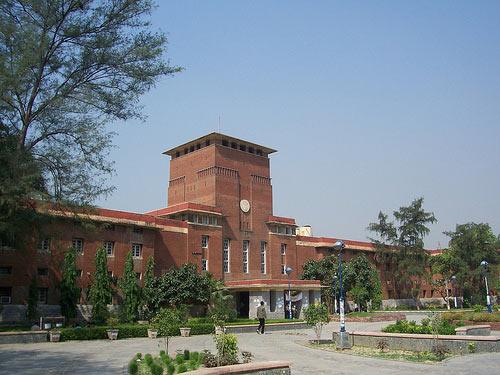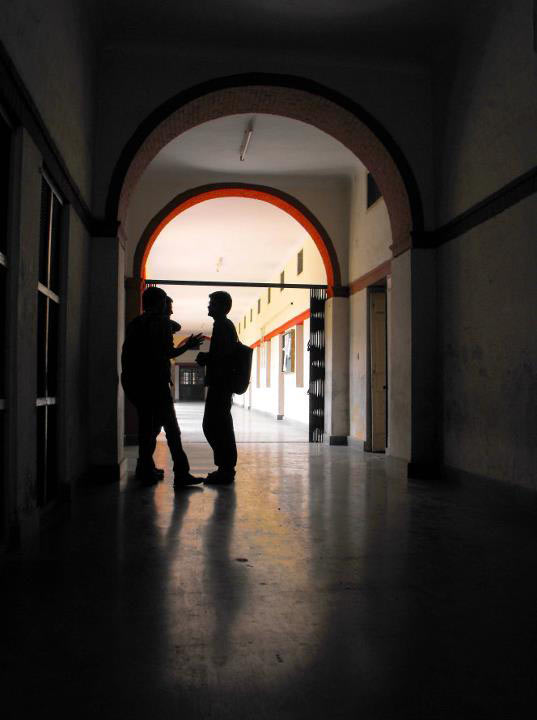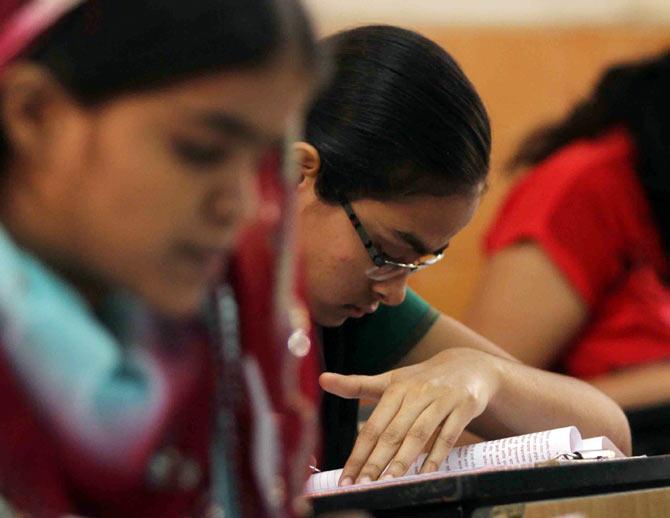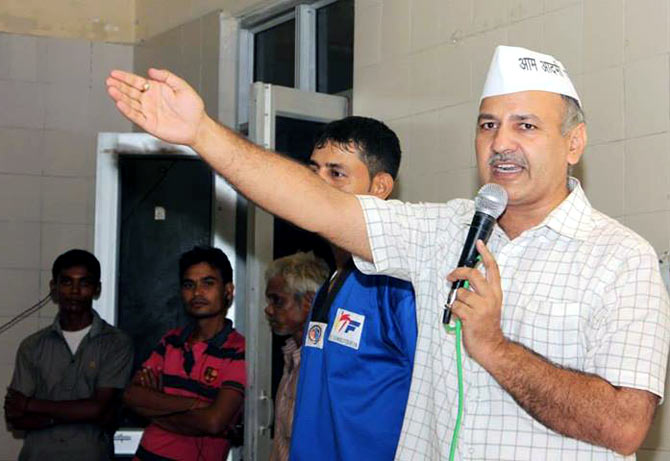 | « Back to article | Print this article |
'Delhi University is not the state's property'
'Quota/reservation in any form is a threat to quality education'
'The reservation proposal challenges the central and federal character of the institution'
'AAP must take into consideration the interests of students from across the country'
'Compulsory reservation is unfair and defeats the purpose'
Students and professors tell us what they think of the Delhi education minister Manish Sisodia's proposal to reserve 90 per cent seats in 12 fully funded colleges in Delhi University to students from the state.
Last week, Manish Sisodia, minister for education in the Aam Aadmi Party-led government in New Delhi proposed that 90 per cent of seats in the 12 fully-funded colleges in Delhi University be reserved for the state's students.
If the proposal is implemented, only 10 per cent of the seats in these colleges (approximately 1,000) will be available to students from outside the national capital.
The proposal was criticised by parents, students and faculty members across the country.
Although the proposal covers only 12 of the 70 odd colleges under Delhi University, it has been pointed out that local reservations would be against the federal nature and purpose of the central university
Delhi University Teachers Association member Abha Dev Habib had already opposed Sisodia's proposal on national media stating that 'The DU is a central university and students from any part of the country should have equal access to every college under DU."
Here is what students and professors had to say about the fallout of such a move.
Reservation is irrelevant, there are other pressing issues
Akhil Singh, a first year student of Daulat Ram College affiliated to Delhi University says the AAP has got its priorities wrong.
"In the last few months, the AAP has emerged as a beacon of hope for the student community, especially after it extended the idea of removing corrupt teachers from the education system.
"But with this reservation, they are stretching it a little too far. There are a host of other issues that the AAP must focus on. We would have appreciated it if the party had suggested bringing back the three-year degree programme, or insisted on increasing the number of seats."
Dr Vijayendra Sharma, professor of Physics at Delhi University was closely associated with the campaign against the four-year undergraduate programme. He feels that the AAP has disappointed students across the globe.
"If they really want to do something for the students of Delhi, they can start by increasing the number of seats and focus on the quality of intake.
"Quota/reservation in any form is a threat to quality education. As it is, deserving students have to swim through cut-throat competition first, then battle cut-offs and now, reservation.
"If the AAP really wants to do something for the students, it should propose ways to demolish the existing reservation system and not find new ways of encouraging it."
Please click NEXT to continue reading...
90 per cent reservation contradicts the spirit of the Delhi University Act of 1922
It challenges the federal character of DU
According to the Delhi University Act of 1922, DU is a central university and is supposed to cater to students irrespective of their place of residence.
Prof Saikat Ghosh, who heads the department of English at SGBT Khalsa College, Delhi, says the 90 per cent reservation contradicts the spirit of this Act.
"Sisodia has not considered the implication of his proposal, which actually challenges the central and federal character of the institution," he says.
Samidha Deswal, a psychology student from Vivekananda College, Delhi, agrees, and says that if the proposal were to be implemented, DU should "cease from calling itself a central university any more."
Rekha Bhandarkar, a second-year commerce student at Jai Hind College, Mumbai, makes much the same point.
"Delhi University is not the state's property. It's a national institution and must take into consideration the interests of students from across the country," she says.
'There is no harm in inducting local students on a priority basis'
No harm in regional politics
Former Tamil Nadu Chief Minister Karunanidhi did it; the Thackerays advocated the same in Maharashtra. So what's the harm if AAP does it in Delhi, questions 21-year-old Vishnu Jayan, a third year electrical engineering student of Mumbai University.
"Although I'm against reservation in any form, if we were to look at it from a local perspective, there is no harm in inducting local students on a priority basis. Delhi University is known for its high cut-offs, which ensures that a vast majority of students are left high and dry without any admission."
He has a point. Of the two lakh students who pass out of Delhi schools every year, only 90,000 are able to gain admission to colleges in Delhi, forcing the rest to look at colleges outside.
'AAP minister is trying to take undue credit for something that already exists'
AAP taking undue credit
Prof Saikat Ghosh points out that the AAP and its minister are claiming credit for something that already exists.
"People who are blindly supporting the proposal must understand that the 12 fully funded colleges are in far flung areas of Delhi and already have an enrolment of more than 90 per cent local students," he says.
The 12 fully funded colleges that fall under the purview of this Act include the Indira Gandhi Institute of Physical Education and Sports Science; Shaheed Raj Guru College; Dr Bhim Rao Ambedkar College; Bhagini Nivedita College;Maharaja Agrasen College; Maharishi Balmiki College of Education; Shaheed Sukhdev College of Business Studies; Dean Dayal Upadhyay College; Acharya Narendra Dev College; Keshav Maha Vidyalaya; Aditi Mahavidyalaya and Bhaskara Charya College of Applied Science.
If one were to observe the above list carefully, colleges like Bhagini Nivedita College, given their remote location are not attractive to outstation candidates and were formed with the purpose of reaching out to rural students and are doing exactly that.
"By propagating 90 per cent reservation in colleges that are already following the norm, the AAP minister is trying to take undue credit for something that already exists.
"However, if you make the reservation compulsory, it will be unfair and defeat the purpose," observed Prof Ghosh.
Give preference to merit
Janani Sinha, 28, is from Itanagar in Arunachal Pradesh and graduated from St Stephen's, Delhi. She explains why limiting seats to students from Delhi will be detrimental to students, especially those from the north-east.
"Several north-eastern states do not have too many good quality colleges. Given the limited number of seats in the top colleges, the probability of getting into a good college for higher education is limited.
"Post class 12, an increasing number of students look to move to cities like Delhi, Mumbai and Bangalore for better career prospects. Colleges in Delhi and Kolkata are always preferred because of their proximity," Sinha says.



